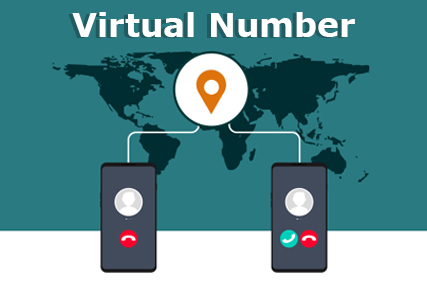
Introduction to Virtual Number Services
Virtual number services provide users with a secondary phone number that can be used for various purposes, such as business communications, personal privacy, or temporary contact information. These services operate through the internet, allowing users to make and receive calls or texts without the need for a traditional phone line. We offer Virtual Mobile Number Services Provider in India, providing seamless communication solutions for businesses. Our platform ensures efficient call management, enabling businesses to establish a professional presence without physical phone lines. With customizable features and reliable support, we empower organizations to streamline their operations and enhance customer engagement effortlessly.
Understanding Vulnerabilities in Virtual Number Services
What Makes Virtual Number Services Vulnerable?
Virtual number services rely heavily on internet connectivity, making them susceptible to cybersecurity threats such as hacking, phishing, and data breaches. Moreover, the integration of these services with other digital platforms increases the risk of exploitation by malicious actors.
Common Security Risks Associated with Virtual Number Services
Security risks associated with virtual number services include unauthorized access to call logs and messages, interception of communications, identity theft, and manipulation of caller IDs. These vulnerabilities pose significant challenges to maintaining the privacy and security of user data.
Types of Virtual Services
There are primarily two types of virtual services: cloud-based and VoIP-based.
Cloud-Based Virtual Services
Cloud-based virtual services operate through internet-based platforms that store and manage user data on remote servers. While these services offer flexibility and scalability, they are often targeted by hackers due to the centralized nature of their infrastructure.
VoIP-Based Virtual Services
VoIP-based virtual services utilize Voice over Internet Protocol (VoIP) technology to transmit voice and multimedia content over the internet. While VoIP services offer cost-effective communication solutions, they are vulnerable to security threats such as eavesdropping and call tampering.
Vulnerabilities in Different Types of Virtual Services
Security Risks in Cloud-Based Virtual Services
Cloud-based virtual services face security risks such as data breaches, server vulnerabilities, and unauthorized access to user accounts. Hackers may exploit weaknesses in the service provider’s infrastructure to gain access to sensitive information or disrupt communication services.
Security Risks in VoIP-Based Virtual Services
VoIP-based virtual services are susceptible to security threats such as call interception, packet sniffing, and identity spoofing. Attackers can exploit vulnerabilities in the VoIP protocol to intercept and manipulate communication data, posing a risk to user privacy and confidentiality.
Measures to Enhance Security in Virtual Services
To mitigate security risks in virtual umber services, users and service providers can implement various security measures:
- Encryption Protocols: Utilize encryption algorithms to secure communication channels and protect sensitive data from unauthorized access.
- Multi-factor Authentication: Implement multi-factor authentication mechanisms to verify user identities and prevent unauthorized account access.
- Regular Security Audits: Conduct regular security audits and vulnerability assessments to identify and address potential security vulnerabilities in virtual number services.
Importance of Choosing Secure Virtual Number Services
When selecting virtual number services, it is essential to prioritize security features and measures to safeguard sensitive information. By choosing secure and reputable service providers, users can minimize the risk of security breaches and ensure the privacy and integrity of their communications.
Conclusion
While virtual number services offer convenience and flexibility, they also pose security risks that must be addressed to protect user privacy and data security. By understanding the vulnerabilities associated with these services and implementing robust security measures, users can mitigate the risk of hacking and safeguard their sensitive information.
About Us:
“Space Edge Technology” appears to be a term that might refer to a company, concept, or technology related to space exploration or utilization. However, without further context, it’s challenging to provide specific information.
Read More.. https://asapmix.com/







